|
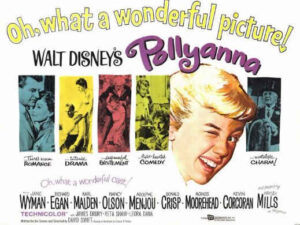
Synopsis:
A young orphan named Pollyanna (Hayley Mills) comes to live with her stern, wealthy aunt Polly (Jane Wyman) in the town of Harrington, where the townsfolk are scared to go against Polly’s wishes. Soon, however, Pollyanna’s ability to seek out the good in any situation spreads to the citizens, who find themselves starting to rethink their priorities and attitudes.
|
|
Genres, Themes, Actors, and Directors:
- Adolph Menjou Films
- Agnes Moorehead Films
- Character Arc
- Do-Gooders
- Donald Crisp Films
- Hayley Mills Films
- Historical Drama
- Jane Wyman Films
- Karl Malden Films
- Nancy Olson Films
- Orphans
- Small Town America
Review:
British import Hayley Mills made her American film debut in this classic Disney tale of goodness and cheer. As in her first movie (1959’s Tiger Bay), Mills provides ample evidence of her skills as an actress, buoying a story which could easily have turned into cloying tripe, and investing her character with an air of surprising realism. Contrary to popular myth, Pollyanna isn’t a perfect angel: she’s adventurous, incorrigibly curious, and — as revealed in the film’s tragic denouement — occasionally naughty. Indeed, she’s a highly believable young girl who has learned to cope with tragedy in her life (both her missionary parents died, and she lived an early childhood of poverty) by playing “the glad game”; kids are notorious survivors, and Pollyanna is living (literary) proof of this fact.
While Mills is undoubtedly the main reason to watch Pollyanna, she’s surrounded by a cast of fine actors who invest their roles with nuance and understanding. Most impressive is Jane Wyman as Pollyanna’s Aunt Polly — like Pollyanna herself, Aunt Polly could easily have become a caricature, but, as played by Wyman, she’s immediately revealed to be someone deeply uncomfortable with herself, who uses her control over “her” town as a means of remaining closed off from her feelings. Nancy Olson — 10 years older than when she played William Holden’s young girlfriend Betty in Sunset Boulevard — is also surprisingly good, and it’s fun to see Agnes Moorehead, Adolph Menjou, Karl Malden, and others in key character roles. Chances are you’ll find yourself enjoying Pollyanna more than you expected to, and will be surprised to learn that “being a Pollyanna” doesn’t mean acting holier-than-thou.
Redeeming Qualities and Moments:
- Hayley Mills as Pollyanna
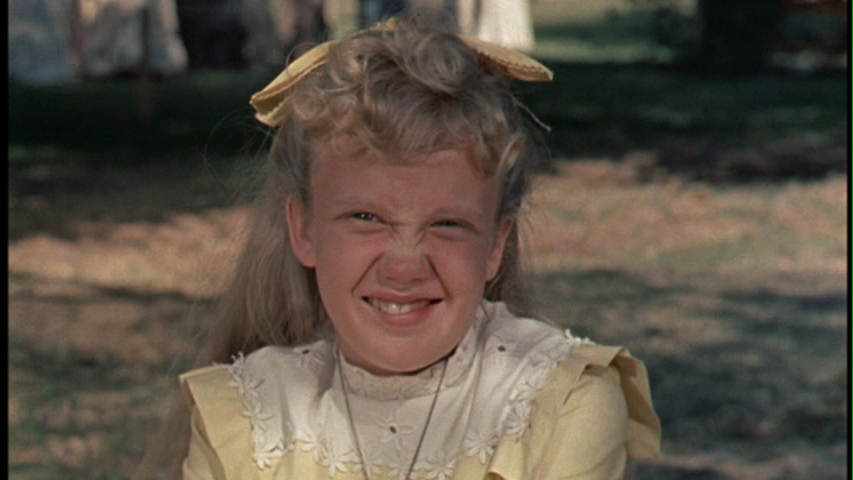
- Jane Wyman as Aunt Polly
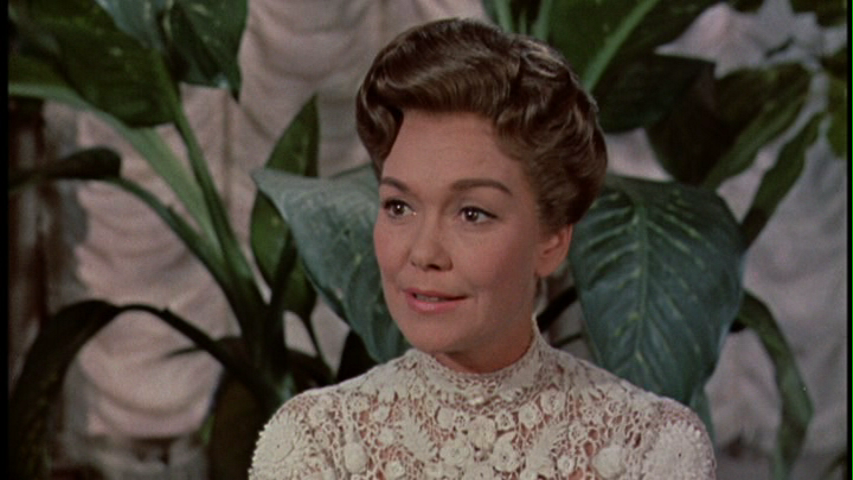
- Nancy Olson as Aunt Polly’s assistant
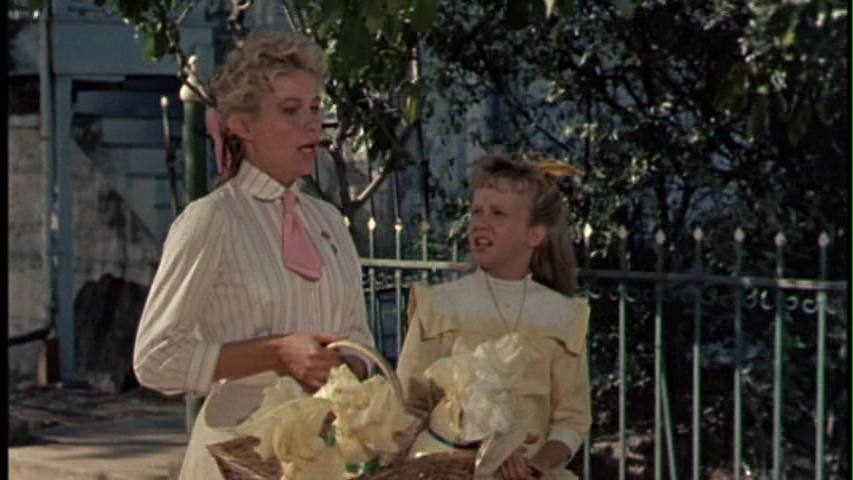
- A heartwarming, seldom cloying tale of living life with good cheer
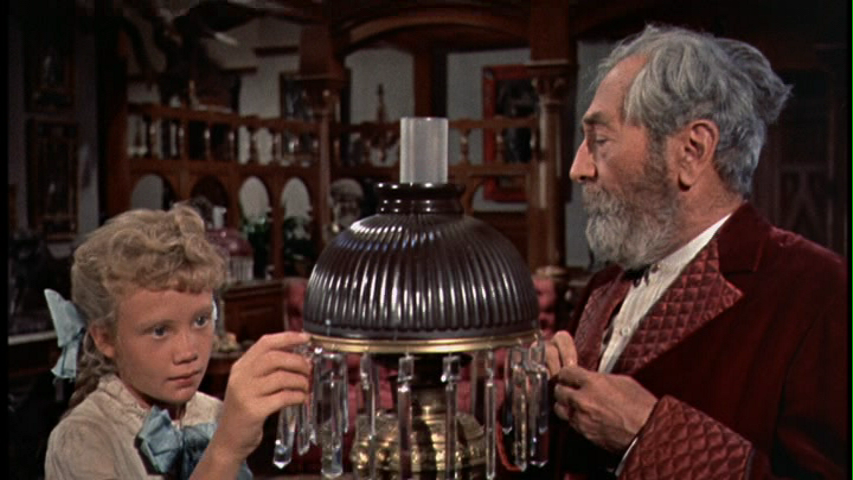
Must See?
Yes, for Mills’ truly noteworthy performance.
Categories
- Noteworthy Performance(s)
Links:
|





One thought on “Pollyanna (1960)”
A must – and certainly a unique film from Disney. Agreed as well that much of the credit for the film’s success lies with the cast, led by the incomparable Hayley. (Sidebar: Nancy Olson kept reminding me of Catherine O’Hara – who would be sure to get the role in the ‘remake’.)
However, screenwriter/director David Swift is also to be commended; his touch is sure throughout. It’s true – material such as this could v-e-r-y easily and quickly turn to sap (and, actually, there are some moments in it that had me dangerously close to ‘Oh, brother!’).
But the cumulative effect is subtle and the finale has undeniable impact. I esp. like the fact that the more curmudgeonly characters like Moorehead and Menjou are allowed to hold on to the occasional ‘harumph’ quality that marks their roles.
As much as I’m drawn to Hayley here (as always), she gets stiff competition from Malden as the minister who rediscovers (discovers?) his relationship with God. I love the arc of his role: from his initial fire-and-brimstone sermon (which is actually a bit hilarious), through his epiphany after talking with Hayley and on to his very moving final sermon, in which he discloses his intent to preach from “the happy texts” of the Bible.
The overall message of the film may be a tad extreme – and, in the real world, a tad unreal – but it does serve to instruct. One loses nothing by at least trying to look for the good in others.
Be forewarned: the film opens with a skinny-dipping sequence and the first thing one sees is a young boy’s bare bottom. My goodness, Walt, how bold!